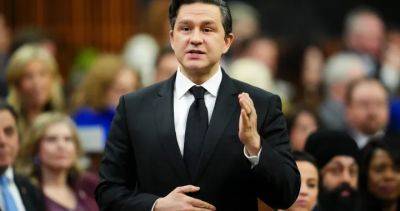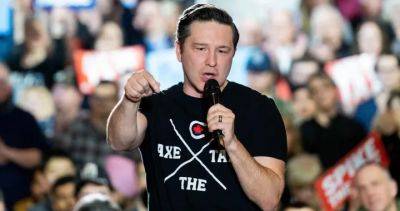What's behind the carbon tax, and does it work?
With the federal government under pressure to freeze its planned increase to the carbon tax, policy experts are calling for a clear-eyed debate over the legislation and its role in the country's climate goals.
Conservative Leader Pierre Poilievre, along with seven premiers, have called for the scheduled April 1 hike to be scrapped, saying it will only make inflation worse. The Tories threatened a non-confidence vote against the government over the issue, which failed on Thursday.
Here's a look at how the policy is supposed to work and to what extent it is effective.
How much is the tax going up?
The carbon tax, also known as a price on carbon, came into effect at $20 per tonne in 2019. It has steadily climbed in the years since and is scheduled to rise from $65 per tonne to $80 on April 1.
It is scheduled to go up another $15 each year until 2030, when it reaches $170 a tonne. The gradual increases are meant to act as a financial incentive for people and businesses to change their behaviour to burn less fossil fuels and transition to greener forms of energy.
For instance, a homeowner would be compelled to retrofit their home to save on heating, install a heat pump, or switch from a gas-powered vehicle to an electric.
The current carbon price isn't high enough to have much of an effect on consumer behaviour, but as the levy rises the incentives to use less fossil fuels will grow, says Christopher Ragan, the director of the Max Bell School of Public Policy at McGill University.
«We shouldn't be thinking about this over a few months or even a few years — we should be thinking about this policy over the longer term,» said Ragan, who is also the former chair of the Ecofiscal Commission, a group of experts that advocated for a carbon






